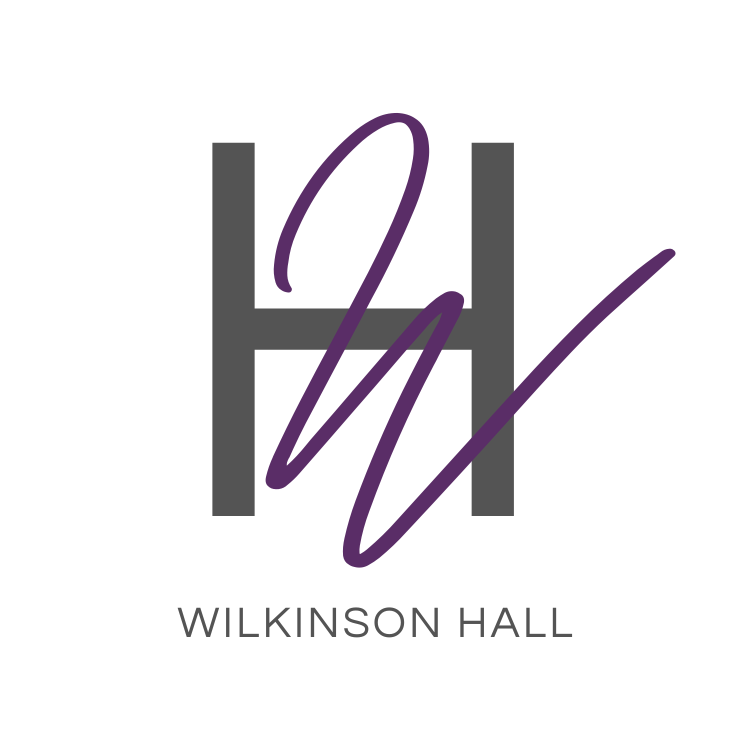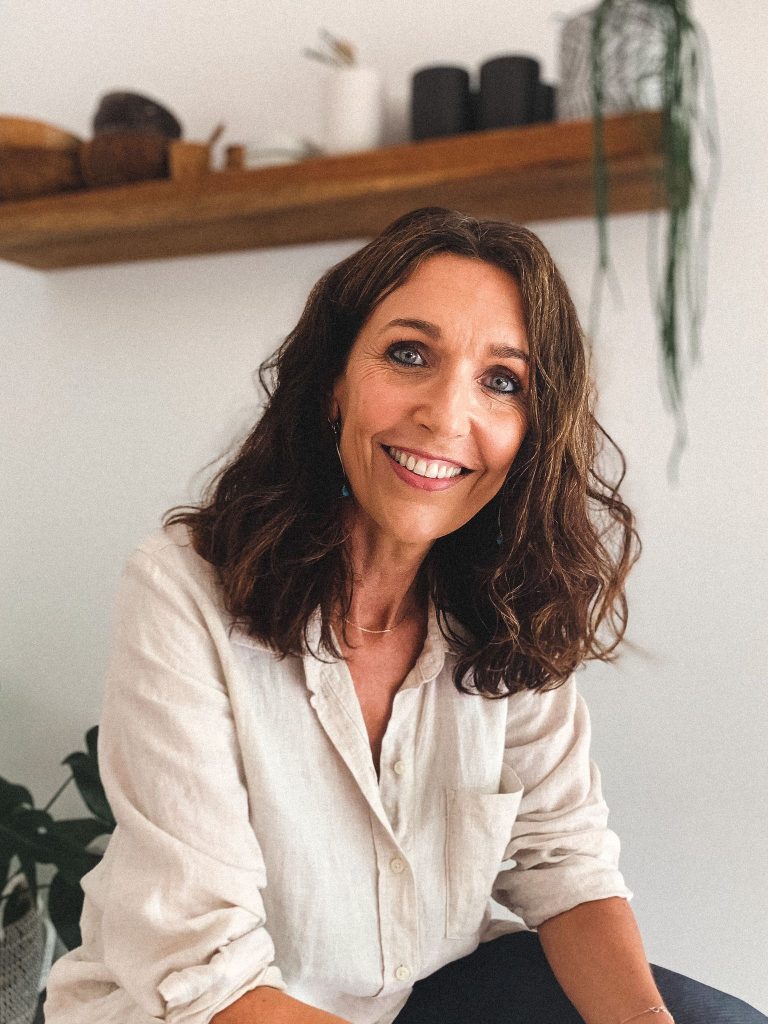We caught up with the wonderful Paula Rixon to chat about her community, Finding Me Again (FMA). For those not in the know, FMA is a Facebook community of over 15,000 women looking for support in many areas of life. Sharing stories, advice, and support on topics ranging from the menopause to accountants (and truly everything in between), FMA is a best friend, a partner, and above all, an empowering force encouraging women all over the world to be the best they can be.
So, to start off, can you tell us a bit about yourself?
Hi, I’m Paula Rixon. I’m 54 years old, have two sons, and live in Sussex. I used to live in Dubai (for three years), and have worked as a recruiter, stylist, professional makeup artist, interior designer, and full-time mum in my life. I’m a real people person and am passionate about building people up, women who support women, and helping people feel confident in themselves and their capability.
You’re a co-founder of Finding Me Again, the hugely popular women’s support group. Who did you start FMA with, what was the reason for starting it, and how long has it been going?
I started Finding Me Again with a school friend of mine, Emma Skeates, also known as The Menopausal Mayhem Mother. After school, Emma and I went our separate ways, but reconnected about 16 years ago. About three years back, Emma and I were chatting about our lives and realised how lost and deflated we both felt. We were both going through the menopause and suffering because of it. We realised how the act of simply talking to someone who can relate to your problems about these pains (physical and emotional) can make you feel so much better. A problem shared really is a problem halved. We started thinking about just how many women must feel this way and decided to set up the Facebook group that evening in the hope we could help even a handful of women. Ever since then, the group has just grown and grown as more women learn about the safe and supportive space we’ve created.
As you may know, Emma is a best-selling author (if you haven’t read Confessions of The Menopausal Mayhem Mother, go and get yourself a copy, it’s hilarious!), and has a following of her own because of that. After posting on her MMM blog, women began pouring into the group, all searching for comfort in the fact that they weren’t alone in feeling lost, and that thousands of other women were experiencing the same issues. Once COVID hit, the group really changed direction. As well as being a support group, the page became a lifeline for many people, moving from discussions about our everyday niggles to some hugely impactful stressors that were taking over people’s lives.
What do you do at Finding Me Again, what is the mission?
We’re an international group with members from across the globe. The mission is to ensure every woman feels empowered, worthy, and equipped with the know-how and confidence she needs to flourish and carve out the life she wants for herself. Our underlying theme is to ensure every woman everywhere is supported, regardless of location (#BigUpTheBra). Our digital presence allows us to do that, removing geographical barriers.
Knowing you’re not alone, feeling safe enough to ask questions without judgement, and getting advice from women who have been there and experienced it too gives you the confidence boost you need to realise that, whatever you’re struggling with, you can do it; it gives people direction.
What’s the most common thing women come to you for support about?
We get women coming to us for advice about all sorts of things. I’d say the most common areas are relationships, business and career, and the menopause. The theme running through everything women discuss on our page is decision-making/direction. As women, it’s so easy to lose confidence in ourselves, our capacity, our thoughts, and what we believe in. Typically, women take time out to look after kids or parents and, as a result, spend time out of work/social situations. Being out of these positions (sometimes for decades) knocks our confidence. We doubt ourselves. Women come to us looking for reassurance they’re doing the right thing, guidance on what other women have done before, or advice on how to go about starting something brand new (or if they even should—and the answer is almost always ‘go for it!’). We’re an open space, and that’s a powerful thing.
You mention the menopause. There are over 50 symptoms of the menopause, all of which can be debilitating. Have you been through the menopause yourself? What was it like for you? Did you find anything that helped ease the symptoms you experienced?
Yes, I have been through the menopause. In fact, I went through it aged 42. I experienced insomnia, night sweats, anxiety (I really felt like I was struggling to cope), bone/joint pain, irritability, low mood, the list goes on. It was a pretty terrible time for me. My sister recommended a trip to the GP as I was relatively young to be going through the menopause, and it’s important to seek help if you’re experiencing any of these symptoms. I had bone density scans and blood tests which confirmed I was menopausal and had osteopenia, which is a precursor condition to osteoporosis. I went on HRT immediately, which genuinely changed my life.
I keep fit, eat well, cook from scratch, take supplements and CBD too (all of which do absolute wonders for the mind and soul) to reduce the severity of the symptoms of the menopause, but there is no replacement for HRT. If you haven’t looked into it yet, or are confused about your options, CarriMe has written a fantastic article about HRT, which can be found here.
Life is very, very different for women of menopause age these days, and we need HRT to cope with that. Women from older generations wonder why we can’t “just get on with it”, but life has drastically changed for women aged 40-60 in the last twenty years. We’re still working, socialising, some of us have children (who happen to be adults) still living at home; we’re going 100 miles per hour and it’s hard. We need to change the way we view HRT because, quite frankly, it’s a lifesaver. It lets us function as if we’re 30, because we’re still living like we’re 30!
What do you find most rewarding about what you do?
Knowing how much of a difference FMA has for so many women in stopping them from feeling alone. Fostering a community spirit amongst women who have never met and knowing the rippling effect it has on all areas of their lives.
So, moving on to CarriMe and FMA. How do you know Angela, the founder of CarriMe? How do the two businesses complement each other?
I met Angela 30 years ago at antenatal classes, doing breathing exercises, as we were both pregnant with our first child (both boys!). Like myself and Emma, Angela and I went our separate ways for a while whilst I was out in Dubai, but we reconnected not too long ago. Angela has been a huge support to me throughout our friendship; from lending me baby clothes to gifting me her (beautiful) wedding dress when I married my husband. She’s a true friend.
CarriMe and Finding Me Again work together to help women in work and health. There’s still a lot of progress to be made to ensure women have access to the support they need around careers, businesses, and becoming financially independent. CarriMe provides women with advice, tools, education, and support on everything business. Whether you’re looking for mentoring on how to ask for a promotion at work, or resources and support on how to start and scale a successful business, CarriMe has what you need. When so many of us have had to give it all up to be carers, mothers, wives, or partners, we need more help getting back into the workplace, or creating our own workplace, and understanding just how to go about it. We’re making it easy for women to establish a path to financial independence and happiness.
Building a business isn’t easy. Do you have any top tips our readers can learn from, some must-avoids, or funny faux pas?
Be prepared for your plan (and business) to go in a slightly different direction as it evolves, and if it feels right, then trust in that change. Also, make sure your business partner is someone you can trust and who has the same core values as you. We’ve had some nasty surprises as a result of working with people we didn’t truly know.
Do you have any advice for women over 40 when it comes to gaining back/building more confidence? How would you guide someone looking to reconnect with themselves?
I think the most important thing is you need to ask yourself ‘what am I really struggling with?’. Be honest with yourself about how this struggle is making you feel, because that’s the only way you’re going to know how big the barrier really is and start to address it. Write and visualise. Who are you now, who were you 10 or 20 years ago, and who do you want to be in the future? Where do you think you want to end up? Psychology professor Dr Gail Matthews of the Dominican University in California conducted a study about setting targets and achieving results, and he found that you’re 42% more likely to achieve a goal if you write it down. Sometimes you can’t beat the old-fashioned pen and paper. I’ve just learnt about vision boards myself. I haven’t tried one yet, but I’ve heard they’re pretty impactful. Just always remember who you really are, who you were, and what you want your life to look and feel like now and in the future.
If you can (or want), find someone externally who can help you with those specific goals; maybe that’s a friend, a therapist, an online fitness channel, a nutritionist, or a particular mobile app to help guide you and keep you accountable for making the changes you want to see.
Can you share one thing that you find particularly helpful in your day-to-day? Do you have anything you couldn’t do without?
Angela has recently introduced me to the app ‘My Hours’ (this is not a sponsored promotion, she just really swears by it!) and it’s helping me stay on track, see exactly where my time is going, and ensure I spend it doing the things that really matter to me.
Lastly, if you could click your fingers and change one thing about the way women perceive and cater to women, what would it be?
One of the things I find most frustrating is the career gap, and how hard it is to come back from that. Everything moves on without you; teams, technology, terminology! If you left work thirty years ago, it’s hard to know where or who to turn to for advice about the workplace, business, and careers. There’s no HR department for the general public. It’s difficult to make any progress alone, so that is what I’d change (and of course, that is exactly what FMA and CarriMe are doing): more support for women coming back to business.

